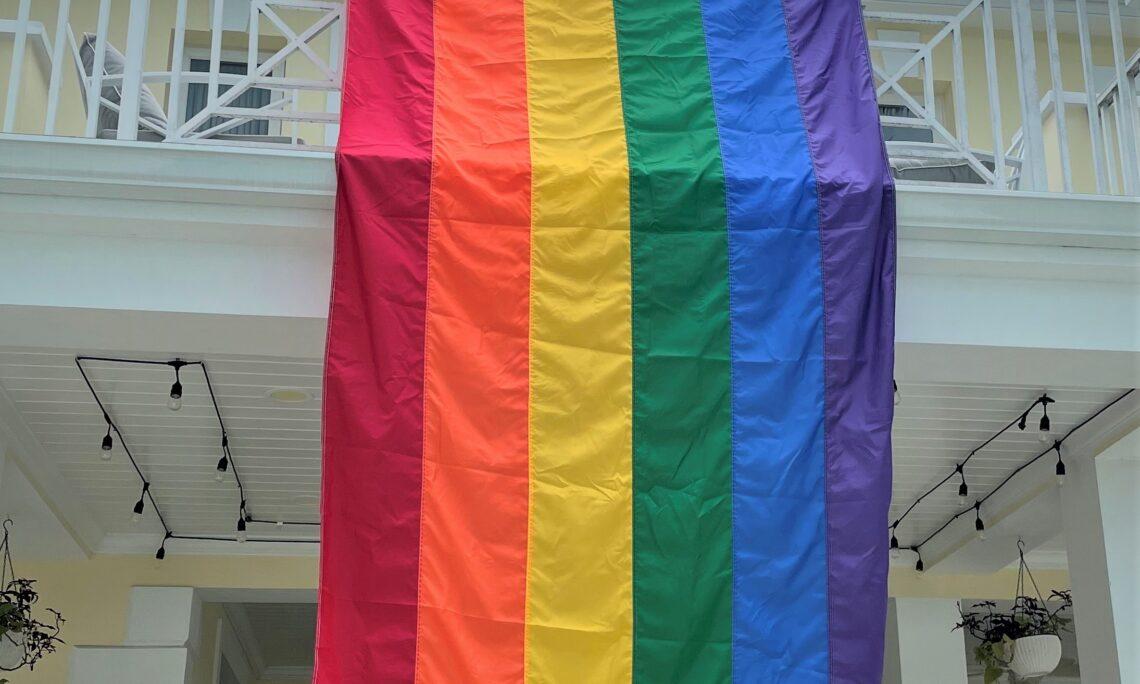Allies Fear America Is Exporting Its Worst Ideas
'People who claim to be progressive and who...distinguish people by the color of their skin are leading us to things that resemble fascism.'

U.S. Embassy Nassau (Credit: State Dept.)
It’s hard to be taken seriously in today’s foreign policy establishment when talking about the harms of what is broadly referred to as “woke culture.”
Russia’s expansionist war in Ukraine, the ascendance of totalitarian China, the ever-present risk of jihadist terrorism, and many other threats would seemingly leave little room to focus on the American culture war. However, foreign policy specialists are now beginning to recognize that this is in fact a problem worth paying attention to.
In an interview with Elle magazine in 2021, French President Emmanuel Macron said imported "woke culture" from the United States is "racializing" France and creating more division among minorities.
That same year, France’s national education minister, Jean-Michel Blanquer, said: “People who claim to be progressive and who…distinguish people by the color of their skin are leading us to things that resemble fascism.”
Today, Macron is acting to distance France from the U.S. in an effort to avoid becoming “America’s followers.”

U.S. Ambassador's residence, Nassau, Bahamas (State Dept. photo)
Macron and Blanquer are far from outliers in being displeased with America’s peculiar culture wars spreading to their countries. With every trip I take to the EU– from Copenhagen to Lisbon and even Iceland– I increasingly hear the same thing: America’s internal problems are negatively affecting European countries. We are exporting our unique cultural conflicts to places that have entirely different histories and frameworks for how to think about difficult topics such as race relations.
The people I speak to in these countries are incredulous as to how and why America has arrived at this contentious cultural moment. The American citizenry is becoming increasingly divided, and, thanks to the internet, we are successfully exporting this division to our international allies. It’s no wonder that leaders who are concerned with maintaining stability in their countries would try to distance themselves from this cultural influence.
One of France's leading magazines, Le Spectacle Du Monde, ran a cover story in 2021 titled "The Suicide of America." The magazine blamed America's retreat from Afghanistan on a “woke dictatorship" and questioned whether the American empire was collapsing.
Not only might America be collapsing, but we might also be taking down significant swaths of European countries with us. The longer we cling to hyper-polarization and sensational “social justice” ideas (or woke-ness, for lack of a better term), the more likely we are to abdicate our position as a world leader, and the less likely our allies— and more importantly, our enemies, such as Russia and China—are to take us seriously.
If we value our reputation as a world superpower, we need to be taken seriously by the rest of the world. In order to be taken seriously, we must effectively counter extremism at home.
Two clear actions we can take are to invest in organizations that combat polarization, and to promote education for young Americans that gives them a comprehensive view of history and America’s place within the global community.
We must reject extremism in every form. Whether it is woke-ism, far right authoritarianism, or religious fundamentalism. America once represented a beacon of hope and democracy, and it’s not too late to return to that.
The time to right the ship was years ago, but we’ve arrived at a critical moment in which we have a choice to make: continue down the path of extremism and watch the American experiment become consigned to the dustbin of history, or do the hard work of uniting the American people, and by default, our international allies, around principles of freedom, democracy, and decency.
Faisal Saeed Al Mutar is founder and President of Ideas Beyond Borders and President of the Board at the Foundation Against Intolerance & Racism.